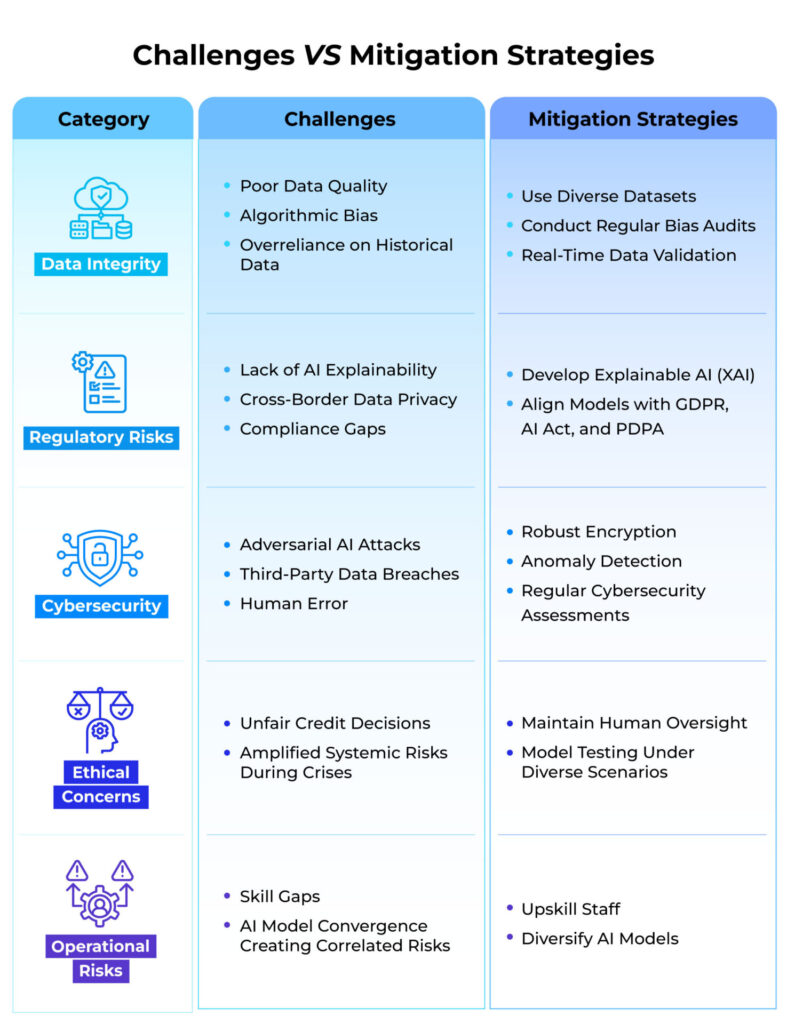The financial industry stands at a pivotal inflection point. Artificial Intelligence (AI) has emerged not merely as an incremental improvement but as a transformative force reshaping the fundamental economics of the sector. This paradigm shift transcends conventional technology upgrades—it represents a comprehensive restructuring of financial business models, where digital transactions replace cash, and cognitive technologies enhance the entire value chain.
Key Takeaways:
- AI as a Transformative Force: AI is reshaping the financial sector by driving digital transactions and enhancing business models.
- Shift to Customer-Centric Models: Financial institutions are moving from transaction-based to relationship-based models, using AI to personalize services.
- AI-Driven Innovation: New business models like peer-to-peer lending and DeFi are emerging, offering greater customer control and transparency.
- Improved Efficiency & Security: AI enables real-time payments, fraud detection, and biometric authentication, enhancing security and operational efficiency.
- Operational Transformation: AI and cloud solutions streamline operations, reduce costs, and enable scalable services.
- Compliance & Ethics: Financial institutions must comply with evolving regulations like GDPR, CCPA, and PDPA while addressing ethical AI concerns.
- Future of AI and Blockchain: AI and blockchain will drive more efficient, transparent ecosystems. Digital inclusion and privacy remain top priorities.
From Transactions to Relationships: The New Financial Paradigm
Market leaders are capitalizing on this shift. JPMorgan Chase and Bank of America deploy AI algorithms that detect suspicious patterns in milliseconds, significantly enhancing cybersecurity. Meanwhile, digital challengers like Revolut leverage machine learning for hyper-personalized financial advice, transforming the competitive landscape.
This evolution allows financial institutions to strengthen security, automate complex operations, and deliver customized services at a previously unattainable scale.
Breaking Traditional Boundaries with Data-Driven Models
Strategic AI integration is redefining financial service architectures. Real-time customer behavior analysis enables personalized loan structures and investment strategies tailored to individual risk profiles.
Innovative models like peer-to-peer lending and decentralized finance (DeFi) platforms offer transparency and customer control. Financial firms are transitioning from transaction-centric to relationship-centric models, unlocking revenue streams via subscriptions, AI-based planning tools, and advanced analytics.

AI-Powered Cashless Finance: A Technological Transformation in Motion
1. Exponential Growth of Digital Transactions
AI helps financial institutions manage rising transaction volumes and complexity. Integration of real-time systems like FedNow and UPI improves operational efficiency, lowers costs, and strengthens digital infrastructure.
2. AI-Driven Real-Time Payments: Speed, Security, and Efficiency
AI-powered payment rails replace outdated systems with faster, safer, real-time transactions. These innovations reduce operational costs while enhancing customer service.
3. Biometric & AI-Powered Authentication: Securing the Future of Payments
Biometric and AI-based authentication systems protect data and transactions while enabling secure, seamless customer experiences—critical in the age of digital finance.

How to Address the Challenges and Risks of AI Implementation in Finance and Banking
✅ Ensure Robust Data Protection: Implement end-to-end encryption, multi-factor authentication, and data masking. Regular audits and privacy-preserving models like differential privacy protect sensitive data.
✅ Mitigate Algorithmic Bias: Train AI on diverse datasets, run bias audits, and maintain transparency in AI-driven decisions to build trust.
✅ Address Workforce Displacement with Reskilling: Develop programs to upskill employees for AI-driven roles—data scientists, trainers, cybersecurity experts—promoting collaboration over automation.
✅ Stay Compliant with Regulatory Standards: Implement governance frameworks ensuring AI meets regulations (GDPR, CCPA) and embed explainability tools for transparency and regulatory reporting.
✅ Improve AI Interpretability: Use XAI techniques to make AI decisions transparent and reviewable, increasing customer trust and compliance.
✅ Strengthen Cybersecurity: Deploy AI-driven anomaly detection, perform penetration testing, and maintain incident response plans to protect against breaches.
The Future Horizon: Integration and Inclusion
AI and blockchain convergence will reshape finance, offering transparent, efficient ecosystems. However, leaders must prioritize digital inclusion and data privacy to ensure equitable access.
In this new landscape, AI adoption is not optional—it is the path to sustainable competitive advantage.
Bluebik Group’s Commitment
Bluebik Group specializes in AI-driven enterprise transformation—combining strategic insight with cutting-edge technology to empower financial institutions for the digital future.
The future of finance is AI-driven, hyper-personalized, and fully cashless.
🚀 Contact Bluebik Group today to unlock the power of AI in your enterprise transformation strategy.
📧 [email protected] | ☎ 02-636-7011












![Thumbnail [Post Event] HOW](https://bluebik.com/wp-content/uploads/2025/12/Thumbnail-Post-Event-HOW.png)